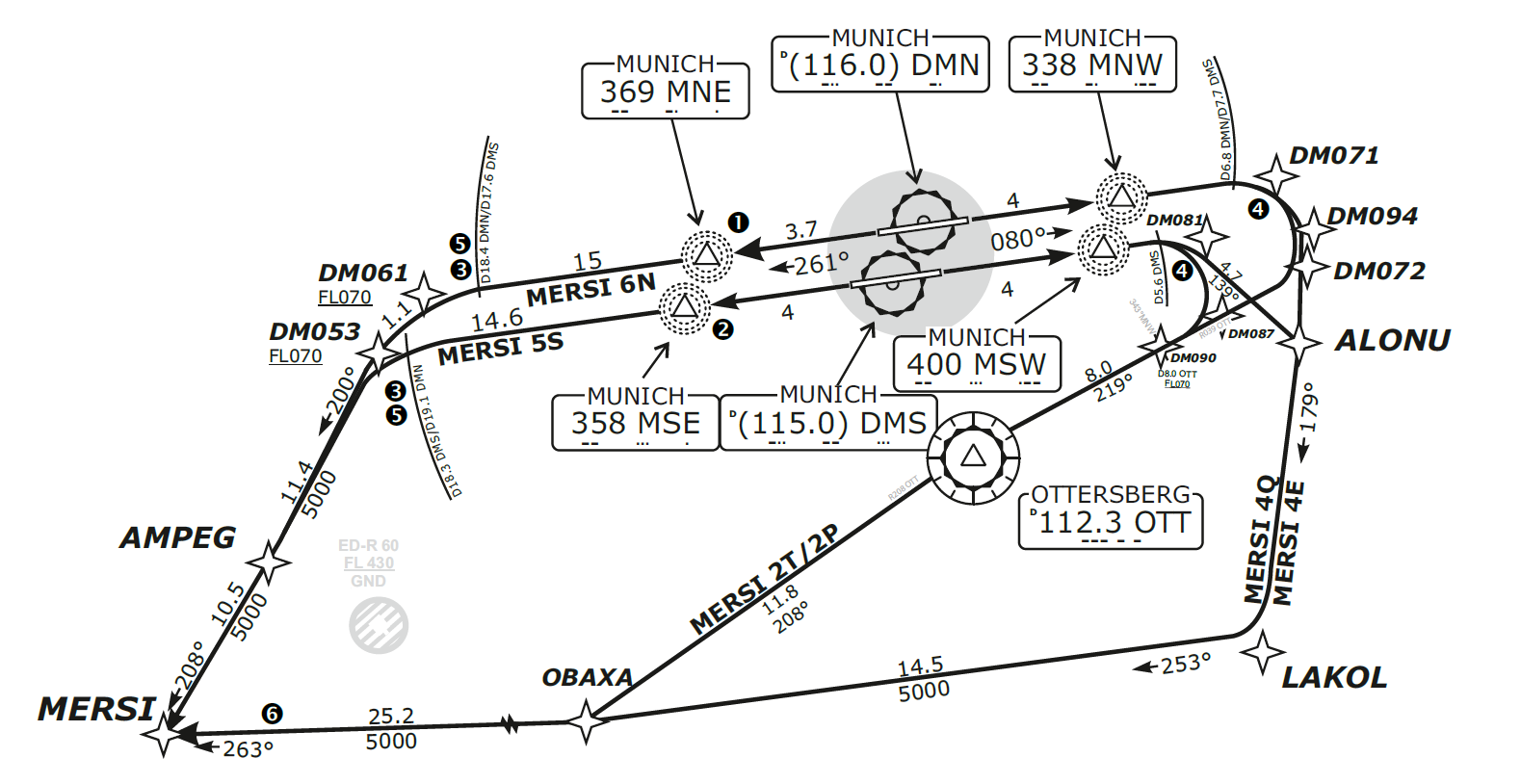SID - Standard Instrument Departure
In order to connect airports with the airway system for IFR flights, predefined departure routes (Standard Instrument Departure - SID) are used. These lead from the respective runway via waypoints and/or conventional navigation facilities such as NDBs and VORs to the first waypoint entered in the flight plan. Nowadays, many SIDs can no longer be flown using conventional radio navigation equipment, as flight routes are becoming increasingly complex, particularly due to noise abatement measures. Their waypoints usually only exist as virtual coordinates. In many cases, therefore, area navigation (RNAV) equipment is required, which every modern airliner is equipped with.
The name of a SID consists of:
- Basic Indicator: Last waypoint of a SID or first waypoint in the flight plan
- Validity Indicator: The Validity Indicator is a number that is incremented as soon as there are minor changes to a SID (e.g. change of variation)
- Route Indicator: The Route Indicator is a letter that can be used to distinguish between different SIDs that lead to the same waypoint. These can differ, for example, due to different runways, routings, altitude restrictions, etc. An example is MERSI6N from runway 26R and MERSI5S from runway 26L in Munich, as shown below.
Example for naming: MARUN6M

Route of the MERSI SIDs in Munich
Route
With the clearance of a SID, the following instructions should generally be clear to the pilot:
-
departure runway in conjunction with the ATIS,
-
initial climb clearance
-
route to be flown with possible restrictions (e.g. speeds or altitudes).
-
frequency change after take-off. In Germany, the frequency change after take-off is part of the SID procedure at many airports. You should therefore always check whether you may/should change frequency independently before take-off. In this case, the tower will not give any instructions, as the frequency changes are indicated in the SID and/or ATIS.
This information can be found in the SID or its charts.
Noise Abatement
In Germany, for noise abatement reasons, controllers are only allowed to issue directs or vectors from certain altitudes when departing via a SID. Any speed and/or altitude restrictions may also only be lifted above these altitudes. These altitudes are:
- 5000ft AGL for JET-powered aircraft
- 3000ft AGL for PROP-powered aircraft
